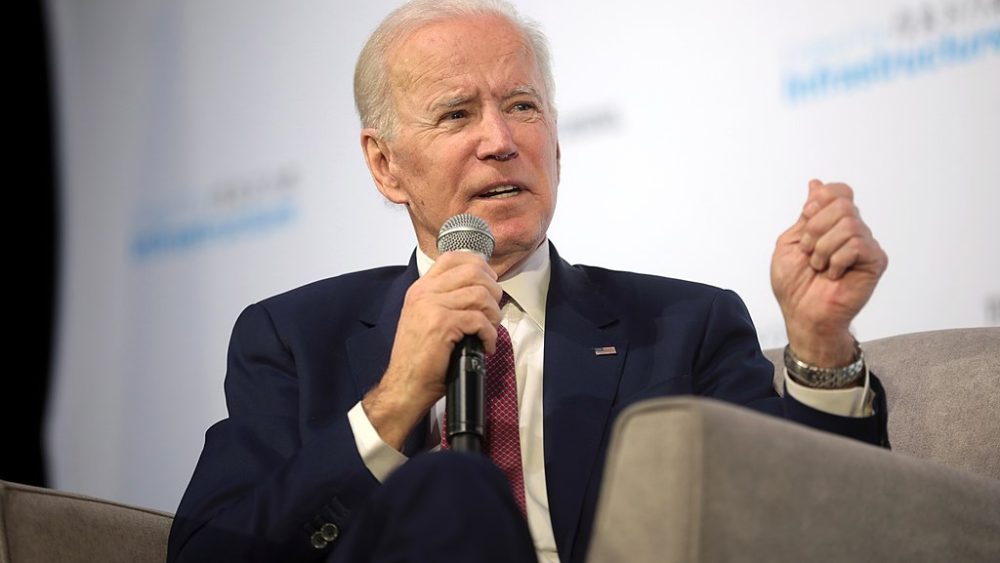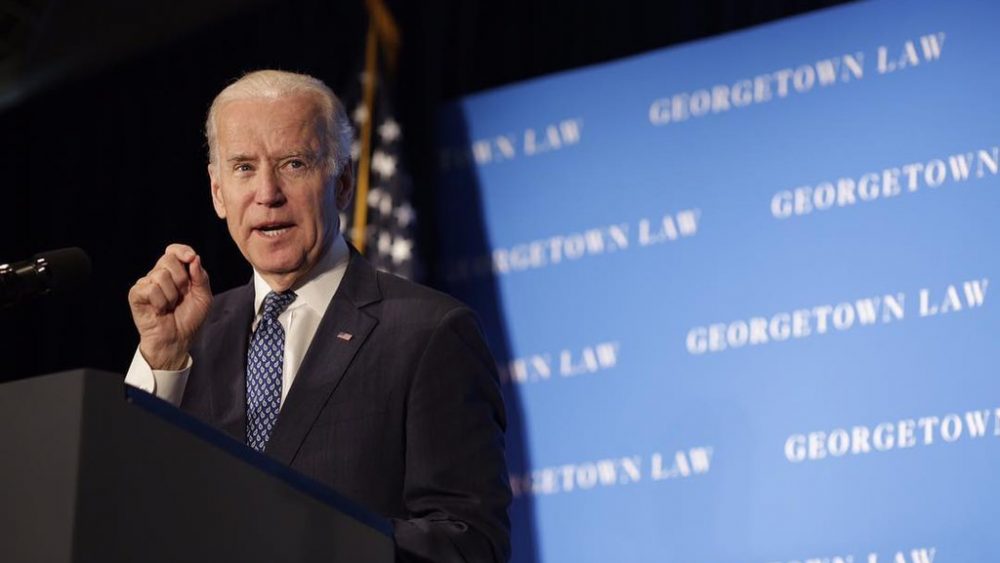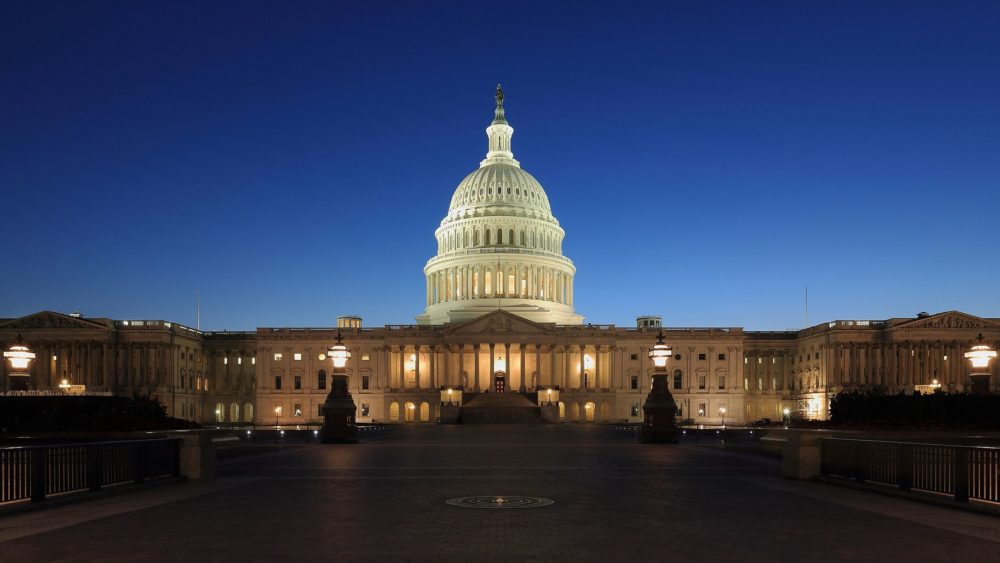January 6, 2023 •
Minimum Wage Required by Federal Contractors Increases for 2023

Pres. Biden - by: Gage Skidmore
For 2023, the minimum wage required to be paid by US Federal Contractors under Executive Order 14026 increases to $16.20 an hour. Beginning January 30, 2022, all federal agencies were required to incorporate a $15 minimum wage in new contract […]
For 2023, the minimum wage required to be paid by US Federal Contractors under Executive Order 14026 increases to $16.20 an hour.
Beginning January 30, 2022, all federal agencies were required to incorporate a $15 minimum wage in new contract solicitations pursuant to an executive order signed by President Joseph R. Biden on April 27, 2021.
The order requires federal contractors to pay a minimum wage for employees working on or in connection with a federal government contract.
Tipped employees performing work on or in connection with contracts covered by Executive Order 14026 must be paid a minimum cash wage of $13.75 per hour.
Contractors and subcontractors must certify they meet this condition requiring the minimum wage. This certification is a condition of payment to the contractors from the government. The order does not apply to grants; contracts, contract-like instruments, or certain specific type of agreements with Indian Tribes.
For 2023, tipped workers received 85% of the wage rate in effect for non-tipped employees, rounded to the nearest multiple of $0.05. Beginning January 1, 2024, and for each subsequent year, tipped workers must receive 100% of the wage received by non-tipped workers, eliminating the difference between the type of workers. Adjustments must be considered by employers of tipped workers who do not receive a sufficient additional amount on account of tips to equal to the minimum wage of non-tipped workers.
If a state or municipality has a higher minimum wage, the Executive Order does not excuse noncompliance with the laws requiring the higher wage.
April 29, 2021 •
President Signs Executive Order Increasing Minimum Wage for Employees of Federal Contractors

Joe Biden - by The White House, Public domain
On April 27, President Joseph R. Biden signed an executive order requiring federal contractors to pay $15 per hour for employees working on or in connection with a federal government contract. Beginning January 30, 2022, all federal agencies are required […]
On April 27, President Joseph R. Biden signed an executive order requiring federal contractors to pay $15 per hour for employees working on or in connection with a federal government contract.
Beginning January 30, 2022, all federal agencies are required to incorporate a $15 minimum wage in new contract solicitations. By March 30, 2022, all agencies will need to implement the minimum wage into new contracts. Federal agencies are also directed to implement the higher wage into existing contracts when the parties exercise their option to extend such contracts.
Contractors and subcontractors must certify they will meet this condition requiring the minimum wage. This certification is a condition of payment to the contractors from the government.
The order applies, with certain exceptions, to any new contract; new contract-like instrument; new solicitation; extension or renewal of an existing contract or contract-like instrument; or exercise of an option on an existing contract or contract-like instrument. This order does not apply to grants; contracts, contract-like instruments, or certain specific type of agreements with Indian Tribes.
Starting January 1, 2023, the minimum wage will be adjusted annually, but not lowered, by the U.S. secretary of labor based on a consumer price index formula and rounded to the nearest multiple of $0.05. For tipped workers, the minimum wage mandated by the order is $10.50 per hour beginning January 30, 2022. Beginning January 1, 2023, tipped workers must receive 85% of the wage rate in effect for non-tipped employees, rounded to the nearest multiple of $0.05. Then beginning January 1, 2024, and for each subsequent year, tipped workers must receive 100% of the wage received by non-tipped worker, eliminating the difference between the type of workers. Adjustments must be considered by employers of tipped workers who do not receive a sufficient additional amount on account of tips to equal to the minimum wage of non-tipped workers.
If a state or municipality has a higher minimum wage, the Executive Order does not excuse noncompliance with the laws requiring the higher wage. The secretary of labor is ordered to issue regulations by November 24, implementing this order.
December 2, 2020 •
Fossil Fuel Companies Won’t Be Powering Biden’s Inauguration

U.S. Capitol - by Martin Falbisoner
President-elect Joe Biden’s newly formed inauguration committee will not be accepting contributions from registered federal lobbyists, foreign agents registered under the Foreign Agent Registration Act, or from fossil fuel companies, their executives, or PACs organized by them. The Biden Inaugural […]
President-elect Joe Biden’s newly formed inauguration committee will not be accepting contributions from registered federal lobbyists, foreign agents registered under the Foreign Agent Registration Act, or from fossil fuel companies, their executives, or PACs organized by them.
The Biden Inaugural Committee, a 501(c)(4) non-profit entity named PIC 2021, Inc., will still accept contributions from American corporate entities and associations to fund the celebratory events of the January 20, 2021 inauguration.
The contributions, which are not tax deductible as charitable contributions for federal income tax purposes, will also be accepted from labor organizations, U.S. citizens, and lawfully admitted permanent residents.
An inaugural committee is responsible for activities connected with the inaugural ceremony, except for the swearing-in ceremony at the Capitol and a luncheon honoring the president and vice president.
Contributions to an inaugural committee are not subject to any contribution limits.
State and Federal Communications, Inc. provides research and consulting services for government relations professionals on lobbying laws, procurement lobbying laws, political contribution laws in the United States and Canada. Learn more by visiting stateandfed.com.

